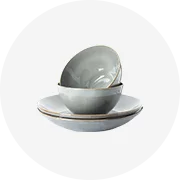
Cloth Garden Irrigation System Under Vegetable Soil Drainage Shade Roll Hole Weed Control Fabric


















White shade nets are a versatile category of netting solutions designed to provide protection and climate control in various settings. These nets are predominantly utilized in agricultural and horticultural sectors, as well as in public and private spaces that require controlled sunlight exposure. The utility of white shade net products extends to applications such as safeguarding plants from harsh sunlight, reducing heat buildup in outdoor spaces, and serving as a privacy screen.
There is a diverse range of white shade net types, each tailored for specific applications. Garden netting, shade sails, and plastic nets are among the common forms. These nets are not limited to agricultural use; they also find their place in commercial settings such as supermarkets, hospitality industries like hotels, and various e-commerce platforms. The adaptability of these nets allows for their use in settings ranging from small garden patches to large commercial farms.
The design of white shade nets is as varied as their applications. They come in multiple shapes, including triangular, rectangular, and square configurations, to fit different spatial requirements. The material composition of these nets is crucial for their functionality. Typically made from durable, lightweight synthetic fibers, they are constructed to withstand environmental elements while providing adequate sun blockage. The color white is chosen for its reflective properties, which help in maintaining lower temperatures underneath the covered area.
Utilizing a white shade net comes with several advantages. These nets are instrumental in creating a microclimate that promotes plant growth by diffusing sunlight and minimizing the risk of plant burn. They also contribute to water conservation by reducing evaporation rates. For spaces where privacy or aesthetic enhancement is desired, these nets serve as an effective solution without compromising on light quality.
When selecting a white shade net, it is important to consider factors such as the density of the netting, which determines the level of shade and protection offered, and the dimensions that will best suit the intended area. Durability and resistance to UV degradation are also key considerations to ensure longevity and consistent performance.
The environmental impact of white shade nets is an important aspect of their overall value. Many of these nets are made from recyclable materials, contributing to sustainability efforts. Additionally, by optimizing growing conditions and reducing the need for water and chemical inputs, these nets can play a role in eco-friendly agricultural practices.